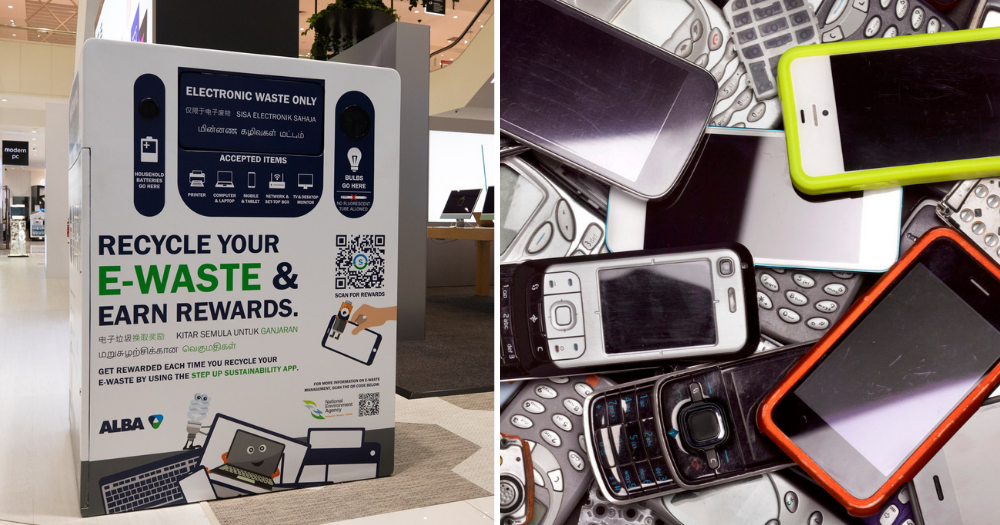In July 2021, Singapore launched its first ever nationwide e-waste management system.
This is part of the Extended Producer Responsibility (EPR) approach, where producers are responsible for managing the disposal of electrical and electronic products that they supply to the Singapore market.
Over 500 e-waste recycling bins have been deployed islandwide at locations such as town centres, shopping malls, HDB estates, residents’ committee centres, community centres, supermarkets, and retail outlets.
More than 300 large electronics retail outlets are also providing in-store e-waste collection services.
2,400,000kg collected
On Dec. 9, Senior Minister of State for Sustainability and the Environment Amy Khor provided an update on Singapore's e-waste recycling efforts at an e-waste event organised by ALBA.
ALBA is a German waste management firm that was appointed earlier in the year to be in charge of collecting e-waste and properly treating and recycling it on behalf of producers.
Under the Producer Responsibility Scheme (PRS), producers are required to finance the scheme and pay for the services provided by the PRS Operator, in this case, ALBA.
During the event, Khor revealed that between July 1 and the end of November this year, 2,400,000kg, or 2,400 tonnes, of e-waste has been collected by ALBA.
Heavy and large household appliances form the main bulk of the weight of e-waste collected, including fridges, washing machines, dryers, TVs, air conditioners.
The others are ICT products such as printer, computer, modem, handphones, and portable batteries.
Khor shared that she is happy the scheme has received positive support from stakeholders and members of the public.
The government is also planning to conduct scheduled e-waste collection drives at housing estates to make recycling even more convenient. This will start "once the Covid-19 situation allows for it", Khor added.
Improvement in e-waste recycling
Singapore generates around 60,000 tonnes of e-waste per year. However, a study conducted from April 2016 to October 2017 found that only six per cent of e-waste was recycled, which equates to around 3,660 tonnes.
This could mean that e-waste recycling has made leaps in bounds in Singapore — after all, the amount of e-waste collected from recycling bins in five months this year is around two-thirds the amount recycled in 2017.
The improvement in e-waste recycling could also be due to greater awareness of environmental issues like waste.
Waste is one of the larger issues the government is aiming to tackle.
Under the Singapore Green Plan 2030, Singapore aims to reduce the amount of waste sent to Semakau Landfill by 30 per cent before 2030.
Additionally, Singapore has also targeted to attain a 70 per cent overall recycling rate under the Zero Waste Masterplan.
In 2020, the overall recycling rate in Singapore was 52 per cent.
More about ALBA's e-waste bins
Those that deposit their e-waste in ALBA's e-waste bins can also earn some rewards at the same time.
With the ALBA STEP UP app, users that scan the QR Code at ALBA's e-waste bins and take a picture of the e-waste they drop off will be rewarded with "CO2 points".
With enough points, rewards can be redeemed from ALBA's partners, including Grab Reward points or a Stojo discount.
You can find more information about the above recycling avenues and a map of recycling locations for each type of regulated e-waste on NEA's website and ALBA's website.
Related stories on waste
Top photo from Grace Fu / FB and Peter Dazeley / Getty Images
If you like what you read, follow us on Facebook, Instagram, Twitter and Telegram to get the latest updates.

